WASHINGTON — The culture wars in American politics take place on a variety of fronts, but the battles over gender and sexuality have come to the forefront in recent months with Republicans leading the legislative charge in states across the country.
From measures to ban transgender youths from participating in sports that align with their gender identities to bills that would restrict drag shows, there has been a proliferation of GOP proposals targeting the LGBTQ community. The increasingly restrictive measures raise questions about what might be next and what political fallout the moves might bring.
The uptick of legislation started in 2020, with a wave of laws banning youths from playing in school sports if their gender identities differed from their birth genders.
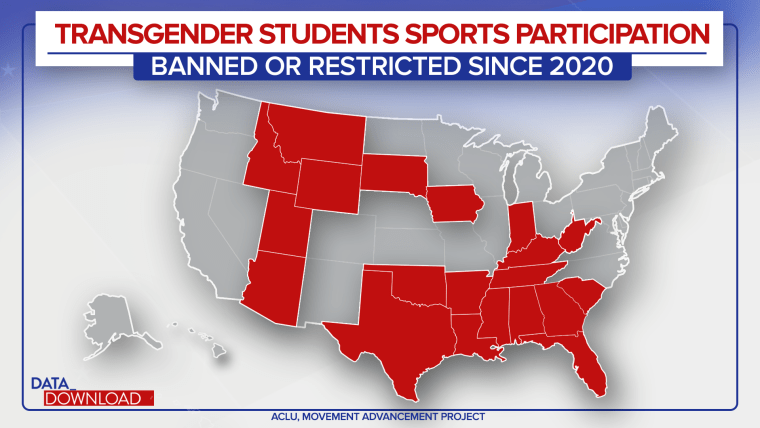
All told, 20 states have passed and implemented similar sports bans, from Alabama and Texas to North Dakota and Iowa. Most of these states do share a common trait: they lean heavily Republican. Eighteen of them (all but Arizona and Georgia) voted for former President Donald Trump in 2020.
Now, Washington has entered the fray. House Republicans have proposed the “Protection of Women and Girls in Sports Act of 2023” that aims to do the same thing nationally.
And the GOP’s interest in legislation around gender and sexuality goes beyond sports. Last week, Kentucky’s legislature overrode a gubernatorial veto to pass a law banning gender-affirming health care for minors. But it was merely the latest state to codify that idea.
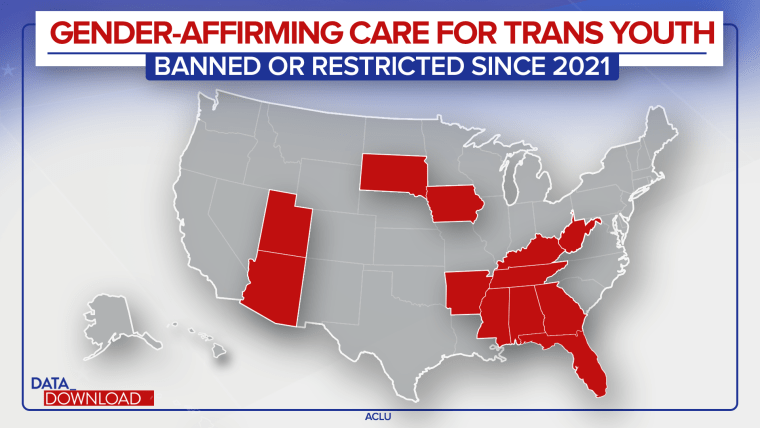
Gender-affirming health care is a set of interventions and treatments the World Health Organization describes as “designed to support and affirm an individual’s gender identity” when it conflicts with the gender the person was assigned at birth (from hormone therapy to psychological services).
The spike in laws banning such care is recent. All of the 12 states on the map above, 11 of which voted for President Donald Trump in 2020, have banned the practice since 2021. Eight laws have come into existence this year, two in the last week alone.
In a country where voters are accustomed to government inaction, the numbers speak to how seriously Republicans are taking the gender issue and how quickly they are trying to act. That’s remarkable when the relative size of the transgender population is considered.
The Williams Institute at UCLA estimates there are 1.6 million transgender people ages 13 or older. That may sound like a lot of people, but statistically speaking, it is roughly one-half of 1% of the total U.S. population over 13 years old.
Still, for Republicans gender, identity and sexuality seem to be spurring a lot of legislative activity. The American Civil Liberties Union says 435 anti-LGBTQ bills have been introduced in state legislatures this year.
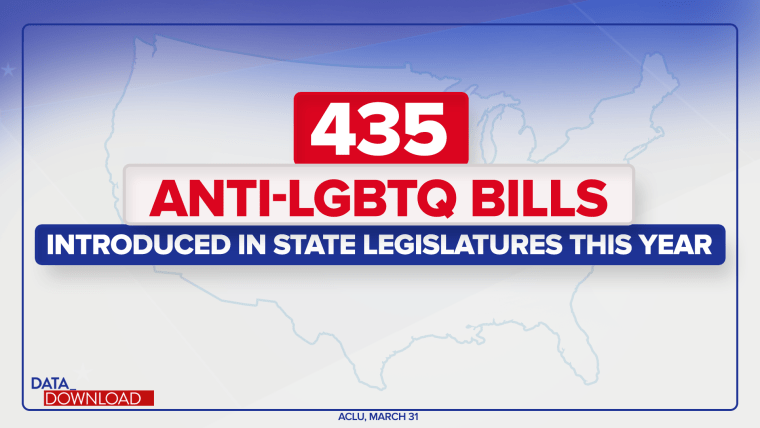
All but six states — Alabama, Delaware, Illinois, New York, Vermont and Wisconsin — have had at least one piece of such legislation introduced this year, according to the ACLU.
And in recent weeks, the GOP has ventured into a new front of the LGBTQ fight with legislation about drag shows, performances in which men and women dress up like the opposite genders and perform.
Tennessee became the first state to severely restrict drag shows, forbidding them within 1,000 feet of schools, public parks or places of worship. The law was to have gone into effect this weekend before a judge issued a temporary restraining order for a few weeks after an LGBTQ theater company sued the state. But Tennessee’s ban has already sparked a series of imitators elsewhere.
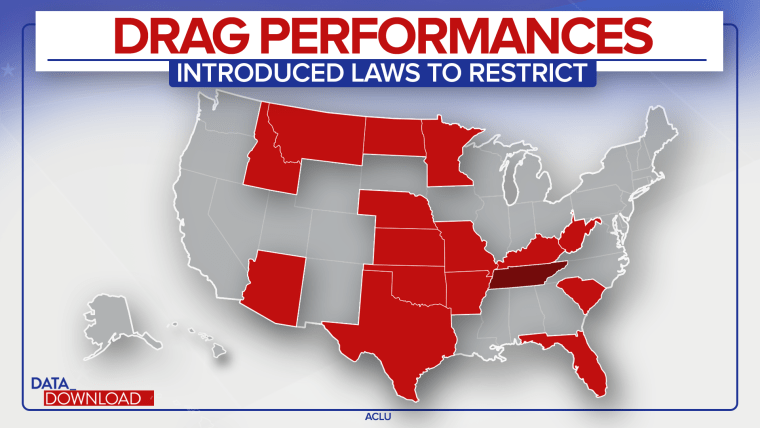
Beyond Tennessee, legislation about drag shows has been introduced in 14 other states — all states that voted for Trump in 2020, except for Minnesota.
To be clear, drag shows are a form of entertainment and not directly related to identifying as trans. But they are being lumped in under the same banner and painted as a negative influence, particularly on young people.
Many of the drag ban bills have just been introduced; it’s not yet clear whether they will go anywhere. And there may be First Amendment issues with banning what many see as a form of artistic expression — the judge in Tennessee cited such concerns when he temporarily halted the law.
But regardless of the bills’ larger fate, the fact that the GOP is hitting such issues so hard suggests Republicans believe they have a winner with their constituents and something they believe will pay off at election time. The second point, however, is far from clear.
Last month a poll from NPR and PBS showed little evidence that the GOP’s approach on such issues is a winner with voters as a whole, at least not nationally.
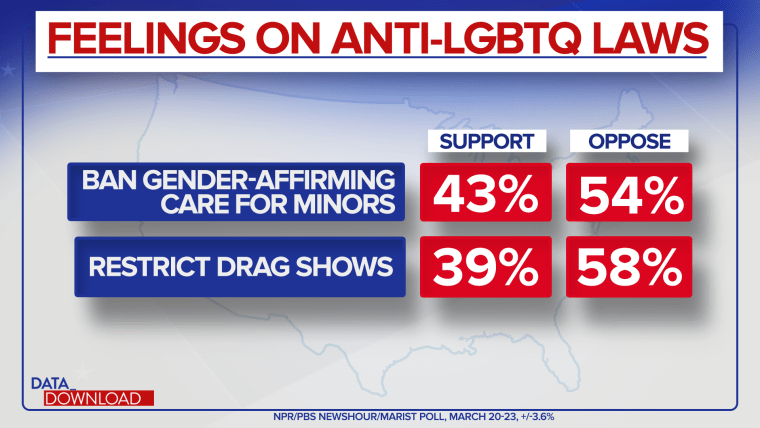
Overall, the poll found that 54% of Americans oppose laws that ban gender-affirming medical care. And an even higher number, 58%, say they oppose laws that restrict drag shows. In 2023, it can be hard to find 58% of Americans who agree on any controversial issue, never mind one that has been getting a lot of media attention.
In a sense, the legislative approaches and targets feel very familiar in 2023. They look like a base-driven approach to governing — laws and bills from Republican officials and lawmakers aimed at resonating with Republican voters.
That has become a popular template for American politics these days, of course. But come election time you usually need more than just your base to win, especially nationally. And beyond the base, it’s not at all clear the GOP’s focus on gender and sexuality will be a plus for it in 2024.